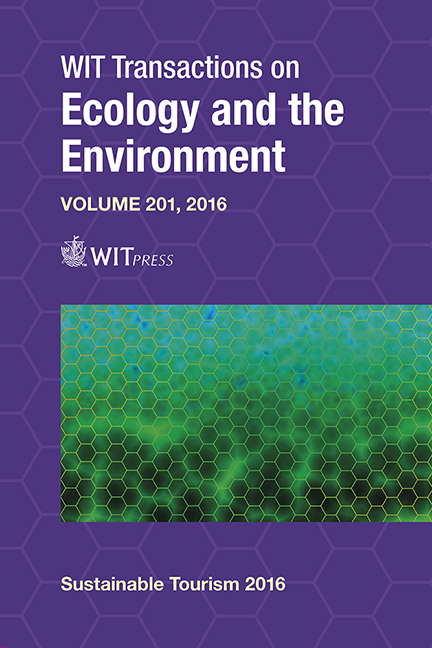Ecotourism Principles As A Framework For Culturally Responsive Community Development
Price
Free (open access)
Transaction
Volume
201
Pages
11
Page Range
15 - 25
Published
2016
Size
1,024 kb
Paper DOI
10.2495/ST160021
Copyright
WIT Press
Author(s)
A. Sarhan, R. Abdelgalil, Y. Radwan
Abstract
Ecotourism is one of the fastest growing sectors of tourism, denoting responsibility to the environment and a duty to respect and develop local cultures. Its development can cause positive and negative impacts, hence its premise is to find a balance between various impacts with an aim to preserve cultural integrity, ecological processes and biological diversity. This paper examines ecotourism as a form of sustainable development for Egyptian communities aiming to manage diverse resources such that economic, social and environmental needs are fulfilled. The case study lies in El-Omayyad biosphere reserve, a protected area designated by UNESCO in 1981. It lies in the western Mediterranean coastal desert of Egypt and possess a variety of flora, fauna and human settlements. The coastal area has witnessed a boom of resort construction, since the 1980s and continuing to date. The area has been divided into fractions of so called ‘tourist villages’. These developments are occupied a mere couple of months per year and have ignored the economic, social and environmental fabric of the area. The reserve presents a further challenge, namely the Bedouin culture and the restrictions of a protected area. This research builds an appraisal tool able to capture the unique elements of the area, addressing the abovementioned challenges along with lessons learnt from the unresponsive recurring developments. To analyze the case study, data sets of physical characteristics, environmental, social and economic values were collated through governmental reports, prior research studies and field observations, corroborated by informal interviews with the locals to highlight crucial issues affecting tourism. For a comprehensive sustainable development in the area, the tool developed in this paper can be used by local government and organizations both in Egypt and other developing nations witnessing similar types of development in order to improve the physical and social environments.
Keywords
ecotourism, sustainable tourism development, north coast of Egypt, protected areas, Egypt desert, Al Omayyad biosphere reserve





